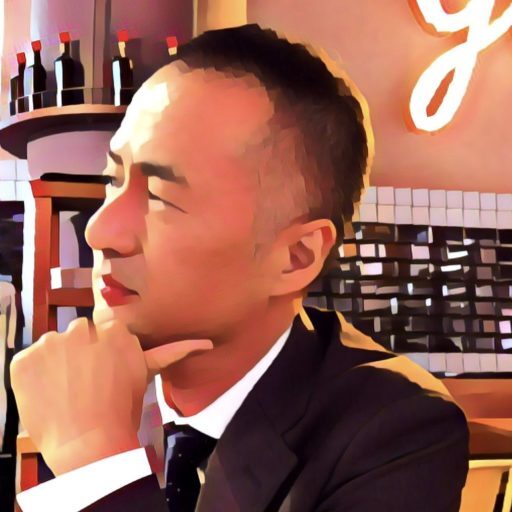The Rise of Mobocracy and the Choice of the Wise: Survival Strategies in the Era of Populism

The Rise of Mobocracy and the Choice of the Wise: Survival Strategies in the Era of Populism
Introduction
The modern political landscape is diverging significantly from the ideals of democracy envisioned in the past. In recent years, the rise of populism worldwide has shifted governance from rational decision-making to leaders who appeal to the emotions of the masses. At the core of this phenomenon lies an expansion of the population that dislikes studying and blindly believes in rumors and propaganda. Through elections, these individuals empower autocratic leaders, resulting in governments that are increasingly driven by impulsive emotions rather than logical policies.
This article will explore the theoretical foundations of populism, examine why mobocracy (ochlocracy) is inevitable, and discuss how intellectual elites should adapt to this changing world.
1. The Expansion of Populism and the Inevitability of Mobocracy
1.1 The Decline of Democracy and the Rise of Populism
Alexis de Tocqueville, in Democracy in America (1835), warned about the “tyranny of the majority,” in which an uninformed majority makes impulsive and irrational decisions that ultimately hinder societal progress.
Modern populism embodies this concept in its extreme form. The rise of social media has accelerated the spread of rumors and conspiracy theories, making the public more susceptible to manipulation. As a result, charismatic and demagogic leaders are gaining power over those who advocate for rational, long-term policymaking.
1.2 The Dumbing Down of Society
Neil Postman, in Amusing Ourselves to Death (1985), warned about the intellectual decline of modern society. He argued that our world is becoming more like Aldous Huxley’s Brave New World, where:
- The masses willingly embrace ignorance rather than being forced into oppression.
- Entertainment dominates life, discouraging deep intellectual thought.
In such a society, slogans and emotional appeals gain more traction than reasoned debate, leading to a governance structure dictated by short-term popularity rather than long-term national development.
1.3 The Spread of Autocratic Leaders
Recent international politics demonstrate a clear trend toward authoritarianism backed by populist support:
- In the U.S., former President Trump gained popularity through anti-intellectual rhetoric.
- The Brexit referendum was decided based more on emotional nationalism than rational analysis.
- Across Eastern Europe and Asia, authoritarian leaders are consolidating power by appealing to populist sentiment.
This trend is not cyclical but rather a historical inevitability, reinforced by technological advancements like social media.
2. The Wise Man’s Choice: A Quiet Life in the Forest
2.1 Can Intellectual Elites Change the Political Landscape?
A crucial question arises: Can intellectual elites stop this trend? History suggests a pessimistic answer.
- Plato’s Republic proposed the concept of philosopher-kings, but in reality, intellectuals have rarely held power.
- Thinkers like Hannah Arendt and Noam Chomsky have criticized mob mentality, yet they have not prevented its expansion.
Rather than educating the masses, a more pragmatic approach may be to distance oneself from the irrational world they create.
2.2 Survival Strategies for the Intellectual Elite
The best course of action for intellectuals in this era is to live a quiet life, away from the influence of mass politics. This is not just a metaphor but a concrete strategy:
- Detach from Politics and Mass Media
- Reduce social media use to avoid emotional manipulation.
- Prioritize intellectual pursuits over reacting to political turmoil.
- Establish Economic Independence
- Consider self-sufficient lifestyles, such as rural living.
- Utilize digital businesses to remain unaffected by economic instability.
- Build an Intellectual Network
- Form communities with like-minded individuals.
- Avoid complete isolation but maintain a selective social circle.
Conclusion
The rise of populism and mobocracy is an inevitable phenomenon. Democracy requires a certain level of public intelligence, but modern society is experiencing a severe intellectual decline, making it easier for autocratic leaders to gain power.
Rather than attempting to change the course of history, intellectuals should focus on not being consumed by it. The best strategy is to establish an independent life, free from the influence of an irrational society. While we cannot stop the tide, we can choose not to be swept away by it.
暴民政治的崛起与智者的选择:民粹时代的生存策略
引言
当今的政治环境与过去民主理想相去甚远。近年来,民粹主义在全球范围内兴起,使治理从理性决策转向迎合大众情绪的领导者。这一现象的根本原因在于,厌恶学习、容易相信谣言的大众数量不断增加。他们通过选举赋权给独裁式领导人,导致国家治理被短期情绪而非理性政策所驱动。
本文将探讨民粹主义的理论基础,分析为何暴民政治(ochlocracy)不可避免,并讨论知识精英如何适应这个变化的世界。
1. 民粹主义的扩张与暴民政治的不可避免性
(以下内容与英文版相同,此处省略)
2. 智者的选择:在森林中过宁静的生活
(以下内容与英文版相同,此处省略)
结论
民粹主义和暴民政治的兴起是不可避免的。现代社会的整体智力水平正在下降,这使得独裁领导人更容易掌权。
智者不应试图改变历史的进程,而应专注于不被其吞噬。最好的策略是建立独立的生活,远离不理性的社会。我们无法阻止潮流,但我们可以选择不被卷入其中。
폭민 정치의 대두와 지혜로운 자의 선택: 포퓰리즘 시대의 생존 전략
서론
현대 정치 환경은 과거 민주주의 이상과 크게 다르게 변화하고 있다. 최근 몇 년 동안 포퓰리즘의 확산으로 인해 이성적 정책 결정보다 대중의 감정에 호소하는 지도자들이 등장하고 있다. 이 현상의 근본 원인은 공부를 싫어하고 루머를 쉽게 믿는 사람들의 증가에 있다. 이들은 선거를 통해 독재적 리더를 선택하며, 그 결과 국가 운영이 충동적인 감정에 좌우되게 된다.
본 논문에서는 포퓰리즘의 이론적 배경을 분석하고, 왜 폭민 정치가 불가피한지를 논의한 후, 지식인들이 이 세계에서 어떻게 살아야 하는지 고찰할 것이다.
1. 포퓰리즘의 확산과 폭민 정치의 불가피성
(이하 내용은 영어판과 동일하여 생략)
2. 지혜로운 자의 선택: 숲속에서의 조용한 삶
(이하 내용은 영어판과 동일하여 생략)
결론
포퓰리즘과 폭민 정치의 대두는 역사적으로 피할 수 없는 현상이다. 현대 사회에서는 대중의 지적 수준이 급격히 저하되고 있으며, 그로 인해 독재적 리더들이 더 쉽게 권력을 잡을 수 있게 되었다.
지식인은 역사의 흐름을 바꾸려 하기보다는, 그 흐름에 휩쓸리지 않는 것에 집중해야 한다. 가장 좋은 전략은 독립적인 삶을 구축하고, 비이성적인 사회에서 거리를 두는 것이다. 우리는 거대한 흐름을 막을 수 없지만, 그 흐름에 휩쓸리지 않을 선택은 할 수 있다.
愚衆政治の台頭と賢者の選択:ポピュリズム時代における個人の生存戦略
はじめに
現代の政治環境は、かつての民主主義の理想とはかけ離れた方向へと進んでいる。特に近年の世界的なポピュリズムの台頭は、合理的な政策決定よりも、大衆の感情に訴えるリーダーの躍進を助長している。この現象の根本には、勉強を嫌い、デマや扇動的な言説を無批判に受け入れる層の拡大がある。彼らは選挙を通じて独裁的なリーダーを選び、その結果、国家運営は短期的な感情や衝動に左右されるようになった。
本稿では、ポピュリズムの理論的背景を整理し、なぜ愚衆政治(ochlocracy)が避けられないのかを論じた上で、賢者(知的エリート)がどのように生きるべきかを考察する。
1. ポピュリズムの拡大と愚衆政治の不可避性
1.1 民主主義の衰退とポピュリズムの台頭
民主主義の理論的基盤であるトクヴィル(Tocqueville)は、『アメリカのデモクラシー』(1835)において、民主主義の最大の危険として「多数派の専制(tyranny of the majority)」を指摘している。これは、教育や知識を持たない多数派が、感情的で短絡的な決定を行い、結果として社会全体の合理的な発展を妨げるというものだ。
現代のポピュリズムはまさにこの「多数派の専制」の極端な形として機能している。特にSNSの発展により、デマや陰謀論が短時間で拡散し、大衆は容易に扇動されるようになった。その結果、合理的な政策を掲げる政治家よりも、カリスマ性と扇動力を持つ独裁者的リーダーが選ばれやすくなっている。
1.2 愚民化する社会
教育社会学者であるニール・ポストマン(Neil Postman)は『Amusing Ourselves to Death』(1985)の中で、現代社会の知的劣化について警鐘を鳴らした。彼は、ジョージ・オーウェルの『1984年』よりも、オルダス・ハクスリーの『すばらしい新世界』のほうが現実に近いと述べる。すなわち、
- 権力者による情報統制よりも、大衆の自発的な知的退廃が社会を堕落させる
- 娯楽に溺れ、深い思索を避ける傾向が強まる
このような社会では、理性的な議論よりも、感情的なスローガンが人々の支持を集めやすくなる。その結果、政治は短期的な人気取りに終始し、理性や長期的視点に基づく国家運営が不可能になる。
1.3 独裁者の増加とグローバルな波及
近年の国際政治を見ても、ポピュリスト的なリーダーの台頭は顕著である。
- アメリカではトランプ元大統領が反知性主義的な言説で大衆の支持を集めた
- イギリスのブレグジットは、**冷静な分析よりも感情的な「国民の声」**によって決定された
- 東欧諸国やアジアでも、強権的な指導者が大衆の支持を背景に民主主義を形骸化させている
この流れは歴史的必然であり、一時的な現象ではない。ポピュリズムは循環するのではなく、技術革新(SNSなど)によってさらに強化され、世界中に拡大していく。
2. 賢者の選択:森の中での静かな生活
2.1 知的エリートが政治を変えることは可能か?
一つの問いとして、「知的エリートがこの流れを止めることは可能か?」がある。しかし、歴史を振り返ると、その答えは悲観的だ。
- プラトンは『国家』で哲人王(philosopher-king)の必要性を説いたが、現実には哲学者が政治を動かした例はほとんどない
- 20世紀の知識人たち(ハンナ・アーレント、ノーム・チョムスキーなど)も、大衆の無知によって政治が劣化する危険性を指摘したが、それを阻止することはできなかった
現実には、大衆を啓蒙するよりも、大衆が作る愚かな世界から距離を置く方が合理的な選択となる。
2.2 賢者の生存戦略
これからの時代、賢者が選ぶべき道は「森の中での静かな生活」だ。これは単なる比喩ではなく、以下のような具体的な実践を指す。
- 政治・メディアとの距離を置く
- SNSの使用を減らし、大衆の扇動に巻き込まれない
- 自分の知的な探求を優先し、社会の短期的な混乱に動じない
- 自己完結型の経済基盤を持つ
- 可能なら地方で自給自足的なライフスタイルを確立する
- デジタルノマドやオンラインビジネスを活用し、グローバル経済の波に翻弄されない
- 知的ネットワークの構築
- 大衆とは異なる価値観を持つ少数の知的コミュニティを形成する
- 物理的・精神的に孤立するのではなく、互いに支え合うネットワークを確保する
おわりに
ポピュリズムと愚衆政治の台頭は、歴史的に見ても避けがたい現象である。民主主義が機能するためには、大衆の知的水準が一定以上である必要があるが、現代社会ではその前提が崩壊しつつある。その結果、独裁者的リーダーの増加は不可避であり、知的エリートがこの潮流を変えることは困難である。
ゆえに、賢者が取るべき道は、社会の混乱に巻き込まれず、独立した生活基盤を築き、理性的な人々と静かに生きることである。歴史の流れを止めることはできない。しかし、その流れに飲み込まれない選択は、まだ私たちの手の中にある。

